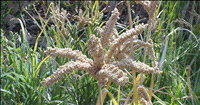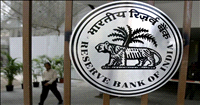Spicy foods could cause aggressive behaviour: study
14 Mar 2017
Consumer behaviour researchers in India have generated what they say could be the first empirical evidence to support a link between the consumption of spicy food and aggression.
The researchers say their findings suggest that spicy food may be a risk factor for aggression just as violent video games and hot weather, but caution that their results, based on experiments on 273 student volunteers, will need validation through larger studies.
"We are not saying that consuming spicy food increases aggression in the real world," Tanuka Ghoshal, assistant professor at the Indian School of Business, Hyderabad, one of the lead authors of the research, told The Telegraph. "But there is a strong connection that needs to be further explored."
Ghoshal and her colleagues Rishtee Batra at ISB and Rajagopal Raghunathan at the University of Texas, Austin, have published their research findings in the latest edition of the Journal of Experimental Social Psychology.
Scientists trying to understand what influences aggressive human behaviour have over the past three decades collected evidence that they say shows that exposure to violent video games appears to increase aggressive behaviour in children and young adults. Several studies have also supported suggestions that uncomfortably hot weather can increase aggressive tendencies.
Researchers say no one questions the importance of individual personality traits that could be influenced by multiple factors, including the home environment. But such research is intended to investigate what else might contribute to aggression.
Last year, psychologists Paul van Lange at Vrije University in Amsterdam and Brad Bushman at the Ohio State University in the US had proposed a model to explain the observations of aggression in hot weather.
In a paper in the journal Behavioural and Brain Sciences, the researchers proposed that hot climate leads to less focus on the future and less self-control.
"The interaction of weather, food and behaviour - this is a new emerging field of research," said van Lange, who specialises in social psychology. "It is possible that certain food habits may themselves be influenced by the climate. It has been proposed that spicy food in hot climates helps decrease the risk of parasite infections."
Studies by other scientists in Europe and the US have prompted some to suggest that spicy food with high levels of a compound called capsaicin can trigger irritation and discomfort in people that may in turn evoke aggression.
Ghoshal and her colleagues designed three studies - each aimed at exploring the connection between spicy food and aggression. In the first study, student volunteers were given questionnaires about their preference for spicy food and tested on their tendencies for aggression based on their own assessments. Those who reported consuming more spicy food were more likely to report higher levels of aggression traits.
In the second study, the researchers divided volunteers into two groups - one consumed bland tortilla chips, the other consumed tortilla chips spiced with chilli sauce during the experimental sessions - and used sentence-completion tasks to measure any differences in aggression. The results again showed that the consumption of spiced chips appeared to activate aggression-linked thoughts.
In the third study, the researchers showed volunteers images of spicy and non-spicy foods and asked them to assess behaviour of a character in a fictitious scenario that could be interpreted in two ways - aggressive or non-aggressive.
Those exposed to images of spicy food were more likely to interpret the behaviour as aggressive, implying that even the mere sight of spicy food - not consumption - can influence perceptions of aggression.
Scientists caution that neither hot weather nor spicy food should be seen as responsible for aggression.
"Climate does not make a person," van Lange had asserted in a media release from Vrije University last year. "But it is a part of what influences each of us."
Likewise, researchers say the India study suggests that spicy food may be correlated with aggressive tendencies.
"But this does not suggest that spicy food increases aggression, but that underlying factors that shape taste may also be involved in aggression," Laurent Begue, a professor of psychology at the University of Grenoble-Alpes, France, told The Telegraph.
Begue and his colleagues had two years ago found a correlation between preference for spicy food and testosterone levels which can influence sensation-seeking behaviour.
Their 2015 study, published in the journal Physiology and Behaviour, had found that men with high testosterone levels prefer spicy food.
"Sensation-seeking is also a predictor of aggression," Begue said. "It is the same with testosterone that appears to predict spicy food and aggression."
Ghoshal and her colleagues are hoping their study will stimulate research to explore correlations between spicy food and aggression through studies that span regions and countries. One line of research, she said, would be to ask whether households that consume spicier food are more likely to experience heated debates.













.jpg)






.jpg)









